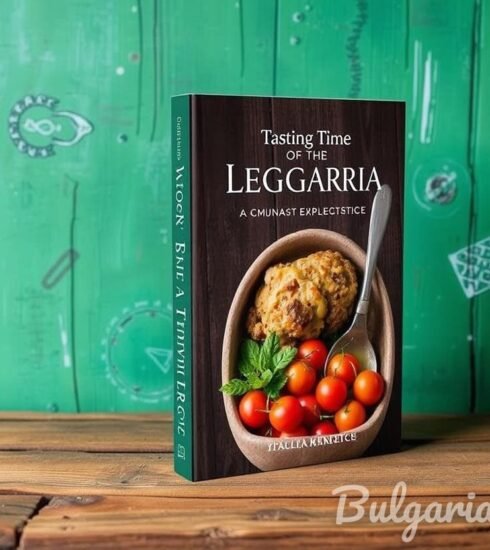Discover the Authentic Delights of Bulgarian Village Cuisine: A Journey through Rural Kitchens
Introduction to Bulgaria’s Village Kitchens
Bulgaria, a country famed for its rich history and picturesque landscapes, also boasts a vibrant culinary tradition that’s as diverse as its geography. Tucked away in its villages, you can discover a repository of both hearty and delicate dishes that tell stories of cultural intersections and historical upheavals. Feasting Through Bulgaria’s Village Kitchens is not just about exploring regional dishes, but experiencing the warm hospitality and age-old customs that come with Bulgarian homestyle cooking.
The Heart of Bulgarian Culinary Practices
In the charming setting of Bulgaria’s rural areas, culinary practices are deeply woven into the fabric of everyday life. Here, recipes are passed down through generations, preserving not only flavors but also familial and community bonds. Each village tends to have its own culinary identity, influenced by local ingredients, climate, and historical exchanges.
Rural Ingenuity: The Use of Local Ingredients
In a Bulgarian village kitchen, the connection between food and the surrounding landscape is palpable. Locals primarily use ingredients they grow, raise, or forage themselves, which could vary significantly from one region to another. This results in a palette of flavors unique to each area, offering a culinary map of the country’s diverse environments.

A Dive into Popular Bulgarian Dishes
The Bulgarian culinary scene is a robust tapestry of tastes and techniques. From the hearty stews and soups to the delicate pastries, each dish offers insight into the local lifestyle and traditions.
Soups and Stews
Bulgarian soups and stews are quintessential, especially in the colder months. Rich in vegetables and meats, they are often seasoned with fresh herbs to enhance the flavors. ‘Shkembe chorba’ (tripe soup) and ‘Tarator’ (cold cucumber soup) are popular among locals and curious travelers alike.
Main Courses
Main dishes often consist of slow-cooked meats, with ‘Gyuvech’ (a type of stew) and ‘Kavarma’ (meat and vegetable dish) being village favorites. These dishes are typically cooked in a ‘sach’, a traditional earthenware pot, which adds a distinct earthy flavor.

Breads and Pastries
Bread is central to Bulgarian cuisine with many villages boasting their own variant of ‘Pita’ or bread. ‘Banitsa’, a pastry made of layers of dough filled with cheese, eggs, and sometimes spinach, is a beloved traditional snack enjoyed across the country.
Seasonal Foods and Festivities
Seasonality plays a crucial role in Bulgarian village kitchens. Many dishes are tied directly to the seasons and the agricultural calendar, aligning with various festivals and holidays that dot the Bulgarian yearly schedule.
Spring and Summer
Spring brings fresh herbs and greens, which are staples in light soups and salads like ‘Shopska Salata’, a salad made typically with tomatoes, cucumbers, onions, and sirene cheese. Summer ushers in an abundance of fresh vegetables and fruits, perfect for ‘Lutenitsa’, a flavorful spread made from peppers, tomatoes, and spices.
Autumn and Winter

Autumn is marked by the preparation of pickles and preserves, essential for the winter larder. Winter, with its chilling temperatures, is perfect for hearty fare like stews and baked dishes, which provide necessary warmth and nutrition.
Experiencing the Authentic Bulgarian Village Feast
To truly experience a Bulgarian village feast is to become a part of the ongoing narrative of the village’s life. Such feasts are typically organized around significant local events or family celebrations, often featuring an array of dishes that showcase the best of what the local terroir has to offer.
Traditional Setting and Hospitality
Dining in a Bulgarian village is not just about food; it’s about experiencing unparalleled hospitality. Meals are often accompanied by folk music and dancing, with locals clad in traditional attire, creating an atmosphere that is both festive and deeply personal.
Workshops and Cooking Classes
For those keen on taking a piece of Bulgaria back home, many villages offer cooking classes and workshops. These sessions are usually held by local masters who teach not only the techniques but also the stories behind each dish.

Interactive Culinary Experiences
Participating in these workshops not only provides an understanding of how to prepare dishes but also offers hands-on experiences with traditional cooking tools and methods, such as the outdoor wood-fired ovens used to make ‘Pechka’ bread.
Conclusion
Feasting through Bulgaria’s village kitchens offers more than just food; it provides a window into the soul of Bulgarian culture, steeped in tradition, community, and the rhythms of nature. Whether you’re savoring a spoonful of homemade yogurt under the shade of a vine-covered pergola or breaking bread with new friends in a centuries-old village tavern, the flavors and stories of Bulgaria are as nourishing as the meals are delightful.
Further Reading
Explore more about Bulgarian culinary delights through these articles:






